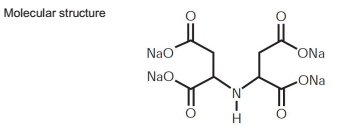
News
nov . 16, 2024 23:38 Back to list
micronutrient fertilizer products
The Importance of Micronutrient Fertilizer Products in Modern Agriculture
Agriculture has come a long way in terms of technology and techniques, yet the fundamental need for nutrients in plants remains unchanged. While macro-nutrients like nitrogen, phosphorus, and potassium often take the spotlight, micronutrients play an equally significant role in promoting plant health and optimizing crop yields. Micronutrient fertilizers have emerged as crucial products that can rectify nutrient deficiencies in the soil, thereby enhancing the productivity of agricultural systems worldwide.
Understanding Micronutrients
Micronutrients are essential elements required by plants in minute quantities for proper growth and development. These include iron, manganese, zinc, copper, molybdenum, boron, and chlorine. Contrary to their name, micronutrients are vital for a multitude of physiological processes, including enzyme function, photosynthesis, and respiration. A deficiency in any of these can lead to poor plant health, reduced yields, and, ultimately, a negative impact on food security.
The Role of Micronutrient Fertilizers
Micronutrient fertilizers serve to supplement these essential nutrients when they are lacking in the soil. They come in various formulations, including chelated forms, which enhance nutrient availability and uptake by plants. The application of these fertilizers has become increasingly critical due to several factors
1. Soil Depletion Continuous farming practices often deplete soil micronutrients, necessitating the need for additional supplementation. Intensive monoculture can lead to imbalanced nutrient availability, requiring precise interventions through targeted fertilizers.
2. Increased Crop Demands As global population continues to rise, the demand for food increases exponentially. Higher yields often require a more comprehensive nutritional approach, incorporating micronutrient fertilizers to support enhanced crop varieties that are bred for productivity but may require specific nutrient inputs.
3. Climate Change and Soil Health Variable weather patterns and climate change can further disrupt the availability of micronutrients in the soil. For instance, increased rainfall can lead to leaching, while droughts can inhibit nutrient uptake. Micronutrient fertilizers provide a buffer against these adverse conditions.
micronutrient fertilizer products

Benefits of Using Micronutrient Fertilizers
The incorporation of micronutrient fertilizers into agricultural practices brings numerous benefits
- Improved Crop Quality Enhanced levels of micronutrients in crops result in better quality produce, with nutritional benefits for consumers. For instance, zinc-enriched crops can help alleviate deficiencies in human populations, thus improving overall public health.
- Higher Yields Adequate availability of micronutrients directly correlates with increased crop yields. For instance, iron is vital for chlorophyll production; thus, ensuring plants have enough iron can significantly boost photosynthesis and growth rates.
- Resilience Against Pests and Diseases Micronutrients improve a plant's ability to fend off pests and diseases. For example, copper plays a crucial role in the synthesis of lignin, which contributes to the structural integrity of plant tissues, making them less susceptible to biotic stress.
- Sustainability Utilizing micronutrient fertilizers aligns with sustainable farming practices. By promoting plant health and reducing the need for more aggressive interventions (like pesticides), these fertilizers support an environmentally balanced approach to agriculture.
Conclusion
As the challenge of feeding a growing global population intensifies, the importance of micronutrient fertilizers becomes ever more evident. These products are not just supplementary; they are essential for ensuring plants have the complete set of nutrients necessary for optimal growth and health. Investing in micronutrient fertilizers is not only a proactive solution for improving agricultural productivity but also a essential step toward achieving global food security. By recognizing the vital role of these nutrients and incorporating them into farming practices, we can pave the way for a healthier and more sustainable agricultural future.
-
Polyaspartic Acid Salts in Agricultural Fertilizers: A Sustainable Solution
NewsJul.21,2025
-
OEM Chelating Agent Preservative Supplier & Manufacturer High-Quality Customized Solutions
NewsJul.08,2025
-
OEM Potassium Chelating Agent Manufacturer - Custom Potassium Oxalate & Citrate Solutions
NewsJul.08,2025
-
OEM Pentasodium DTPA Chelating Agent Supplier & Manufacturer High Purity & Cost-Effective Solutions
NewsJul.08,2025
-
High-Efficiency Chelated Trace Elements Fertilizer Bulk Supplier & Manufacturer Quotes
NewsJul.07,2025
-
High Quality K Formation for a Chelating Agent – Reliable Manufacturer & Supplier
NewsJul.07,2025
